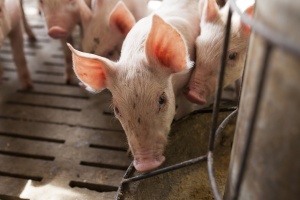4 Farm Moms and the Labels They’re Not Buying
In a world filled with choice, a food label can be like a beacon of fluorescent light in the grocery aisle. Nutritional content, ingredients – this is information that helps. But then there are labels that mislead or confuse rather than clarify, hindering your ability to pick out healthy, nutritious food for you and your family.
These four farm moms have an insider’s view of how food is grown and raised. They see right through label claims designed to make more money rather than inform.
Labels that lie
“I find the GMO-free or Non-GMO Project Verified labels most irritating as a farmer. One could argue they are not misleading because that box of popcorn is GMO-free, but so is the box that isn’t labeled. No genetically modified popcorn hybrid exists. I find these labels misleading because there is a presumption on the consumer’s part (I know, because I am a consumer and I find myself making presumptions too) that there must be a genetically modified strawberry if one package is labeled as such and the other packages are not.” – Katie P., mother of two from Dixon, IL
There are only 10 GMO crops available in the U.S. See the list here.
“Labels that bother me the most are things that don’t actually exist, like ‘hormone-free’ anything or ‘grass-fed pork.’ I wouldn’t (and couldn’t) feed my kid only grass, so I wouldn’t do that to my pigs, either!” – Carrie P., mother of one from Winnebago, IL
Labels that mislead
“We are so fortunate to have the world’s most abundant food supply, full of choices. Sometimes, however, too many choices can lead to confusion and questions. While some food labels simply tout a ‘more healthy’ or ‘natural’ choice for your family, other labels (non-GMO, organic, gluten free, etc.) can be misleading. Just because a label is on a certain food doesn’t mean that it is necessarily better for you or you should feel obligated to pay more for it.” – Emily W., mother of six from Farmington, IL
“Labels touting claims about antibiotics bother me, too. My 18-month-old is still ‘antibiotic-free’ and I’m very proud of that, but that is only because she has been lucky enough to never need them. If I get that lucky with my pigs or cows, that’s great! But as their caretaker, I wouldn’t deprive them of medicine they needed to keep them healthy and, ultimately, keep us all healthy!” – Carrie P., mother of one from Winnebago, IL
Labels that distract
“I try to shop the edge of the store. I trust our food system, and when looking at labels, I personally look for lower-processed items. My son had an egg allergy that he has now outgrown, but at the time, I had to focus on every word of the label, I didn’t have time to be bothered with senseless marketing claims and I needed to know if that food was going to cover my toddler in hives. Labels that indicate the presence or ‘free from’ information of true allergens are the ones I think hold the most significance. I don’t care if the cereal has X grams of whole grains when the first ingredient is sugar. To me, true health and nutritional facts are what the label is for.” – Megan D., mother of three from Coal Valley, IL
“While dietary restrictions, allergies and other factors may play into your food-buying plan, our abundant food supply, full of choice, is also the safest food supply in the world. We are lucky to have extra information provided on our food, but a label should not drive a person to believe the product is safer, raised ‘better’ or more nutritious. That’s why when I am shopping for my family, I purchase food based on the recipe I am preparing, the nutritional value and the price. Labeling does not sway my purchases; rather, I look for what tastes better, produce that is in season and how to stick to my tight food budget.” – Emily W., mother of six from Farmington, IL










0 Comments